Todd Sampson fears children play online without a real understanding of its effects
Todd Sampson fears for our kids’ minds after investigating the perils of an online world.
SmartDaily
Don't miss out on the headlines from SmartDaily. Followed categories will be added to My News.
Todd Sampson fears our children are being used as “canaries in the mine”, being allowed to play in an online world without any real understanding of its lasting and damaging effects.
“We are 4.6 billion people trapped in a psychological experiment of which we are only now getting the results,” Sampson explains.
“So, the experts are feverishly trying to understand the data in their mind before it’s too late. Before we lose a generation of children to this and then wake up and realise whoa, we should have done something about this earlier.”
Himself a father of two teenage girls, Sampson is the first to admit that when his daughters were young, he’d used screens as a pacifier. And now that they are older, he’d been the one to downplay the risks of screen time in his household.
All that changed, however, when he spent eight months investigating the impact of the internet on our psychology, our relationships and our culture for his latest miniseries Mirror Mirror: Love & Hate.
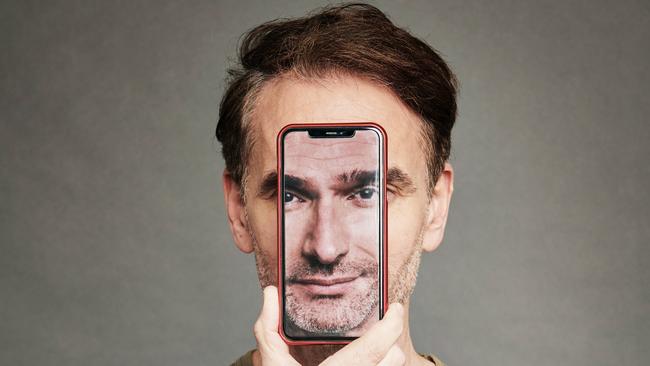
Now, Sampson has not only begun deleting social media from his own life, but he’s actively encouraging his children to socialise in real life rather than online.
“My wife Naomi is very against heavy screen usage,” he says.
“She’s very against social media, and I’ve always been very liberal about it. I’ve always been like: ‘It’s OK, it’s their world. I want them to experience that.’ When she sees the film (Mirror Mirror), it’s going to be ammunition in her weapon that will be pointed directly at me.”
Having tackled body images and its negative effects in his first Mirror Mirror miniseries, the former advertising executive says the online world seemed the obvious next frontier.
“But the first thing my youngest daughter said was: ‘Dad, no! You’re making another (controversial) show where the kids at school are all going to be pissed off because you’re telling them not to use their devices’,” he laughs.
“So their initial reaction to it is: ‘Dad, could you stop talking, please!’”
Sampson acknowledges it is challenging for parents to police their children’s onscreen life because it is an area where kids have the upper hand.
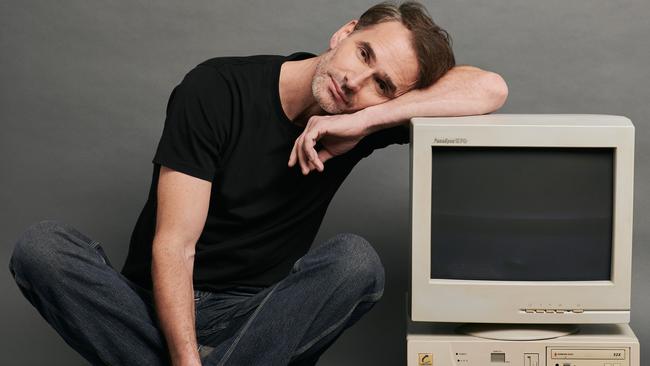
“We (as parents) existed in a world where there wasn’t an internet, so we know both sides,” he explains.
“Our kids are swimming in water they don’t know anything else.
“So us being somewhat condescending to them and telling them how they should live their lives online feels a bit like a dinosaur explaining things to them.
“So I don’t think that’s the way to go. I think the way to go is inside out. We need to try and understand the world from the inside out, without judgment.”
That’s pretty much how Sampson also approached all his interviews for Mirror Mirror and why, in turn, his subjects felt so comfortable talking to him.
“Everyone involved with these films gets worried about that [being made to look foolish or made a target for online abuse], but I think most of them genuinely have a story to tell and they want to tell it,” he says.
“And I think they know, at least those in this country know, I’m not going to judge them.
“I’m not going to make a film that makes fun of them. I don’t have a secret agenda. I’m not trying to out them.
“I really just want to understand. And the reason I want to understand them is that there may be lessons for all of us with our kids, or us at home or as adults. And I wanted to tell real stories, not theoretical stories.”
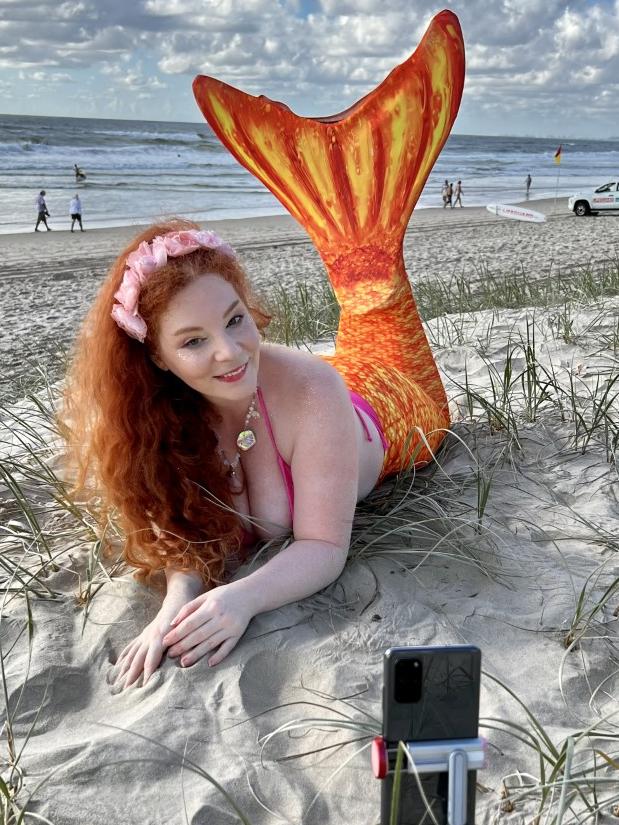
As such, Sampson interviews a woman who performs interactive porn while dressed as a mermaid through Only Fans, an influencer whose DIY facial tattoos went viral in more ways than one, and a conspiracy theorist who believed a reptilian alien race was running the world.
He also speaks to a young boy who was groomed by a predator on the online game Fortnight and a young woman who was catfished into sharing intimate photographs and videos of herself.
“I’m not showing the fringe,” he emphasises.
“I’m just showing the mainstream to people that may not have seen it.”
And that included himself. During the course of his research, Sampson learned about Omegle, a platform which proudly boasts of introducing its users to strangers online. On it, Sampson witnessed men exposing themselves to curious children and urging them to take the conversation on to a more private platform.
He was even more horrified when he went home to discover that his own daughters already knew all about Omegle. That’s because the internet has increasingly become this generation’s playground, where their curiosity can take them down some dark rabbit holes.
“The amount of time spent outdoors is decreasing,” he says.
“And the amount of time spent online is dramatically increasing. And it’s a world that’s not policed. It’s a world that’s unregulated. And so our kids are just living in this world, and exploring and these companies, and specifically that company (Omegle), plays on our innate curiosity and desire to connect.”
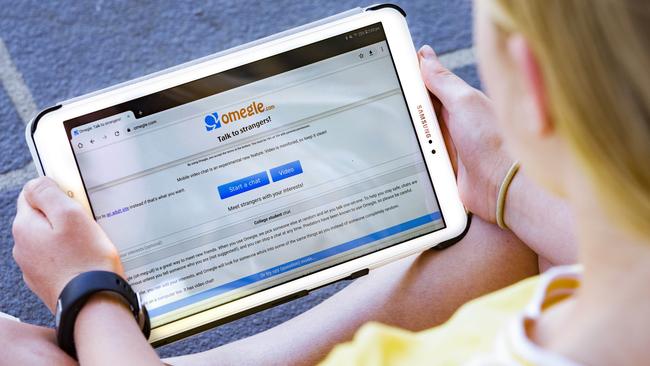
It’s little wonder then, Sampson says, that: “in the first year of Covid there was a 300 per cent increase in online abuse and particularly sexual exploitation online”.
Sampson had hoped to speak to the men who are behind the online world we now navigate.
“We asked all of them but as soon as they googled me and saw the last series of Mirror Mirror (they said no),” he says.
“YouTube was very close. They said: ‘Yeah we are interested’ and we were already flying over to Silicon Valley when, at the last minute, they said: ‘Well, we are not going to do it’.
“And the reason is because they are making changes. All of them are making changes. As (former Twitter executive) Jeff Seibert points out, it’s against their fiduciary duties to change it too much and they don’t necessarily want that critical eye over it.”
While there are lots of practical things that parents can do to reduce the risks to their kids, ultimately Sampson believes the internet itself needs to be regulated.
“I don’t think Mark Zuckerberg set out to destroy the fabric of society. But that is what he has done,” Sampson shrugs.
“It’s not too late though. We just need to take action now.”
Mirror Mirror: Love & Hate
7.30pm, Monday, October 10, and Tuesday, October 11, Ten and 10 Play.
TODD’S TIPS FOR KIDS ONLINE
Immerse yourself in their world: Just as you spend time with your kids in the real world, spend time online with them. Get them to explain to you how it all works.
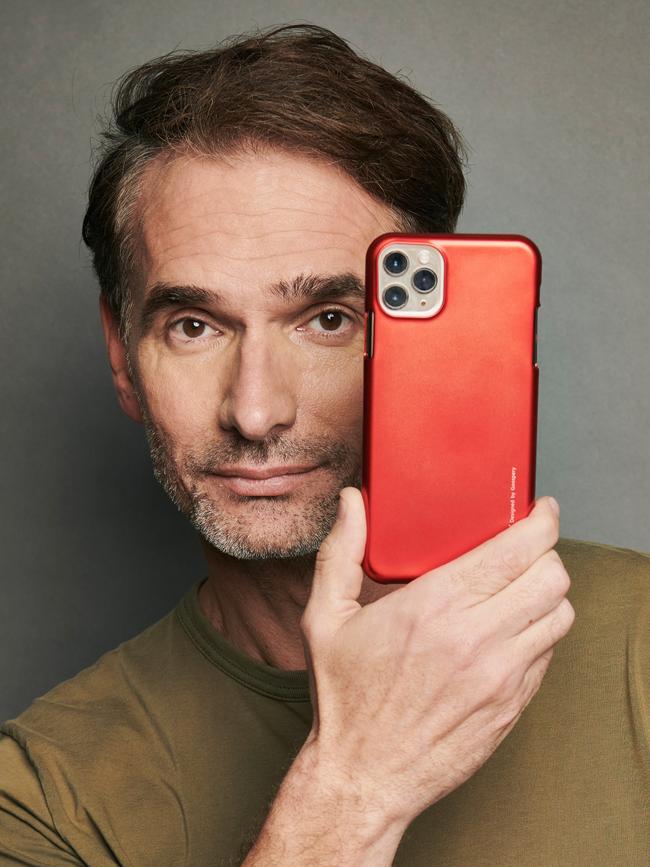
Switch off notifications: My phone does not control me at all. It does not control my attention. When I want to see something, I go to it. It doesn’t get pushed on to me.
No screens in the bedroom: Set a curfew when the devices go away. What we now know is that kids are at the most vulnerable at night, that’s when they are functioning on the emotional part of their brain, leaving them more vulnerable to cyber bullying.
Digital detox: Switch phones off for the weekend. And that means parents as well.
Grey scale the phone: Go into display and turn the whole phone grey because not having those colourful icons at you all the time reduces the hit from them and the desire to look at them.
More Coverage
Originally published as Todd Sampson fears children play online without a real understanding of its effects




